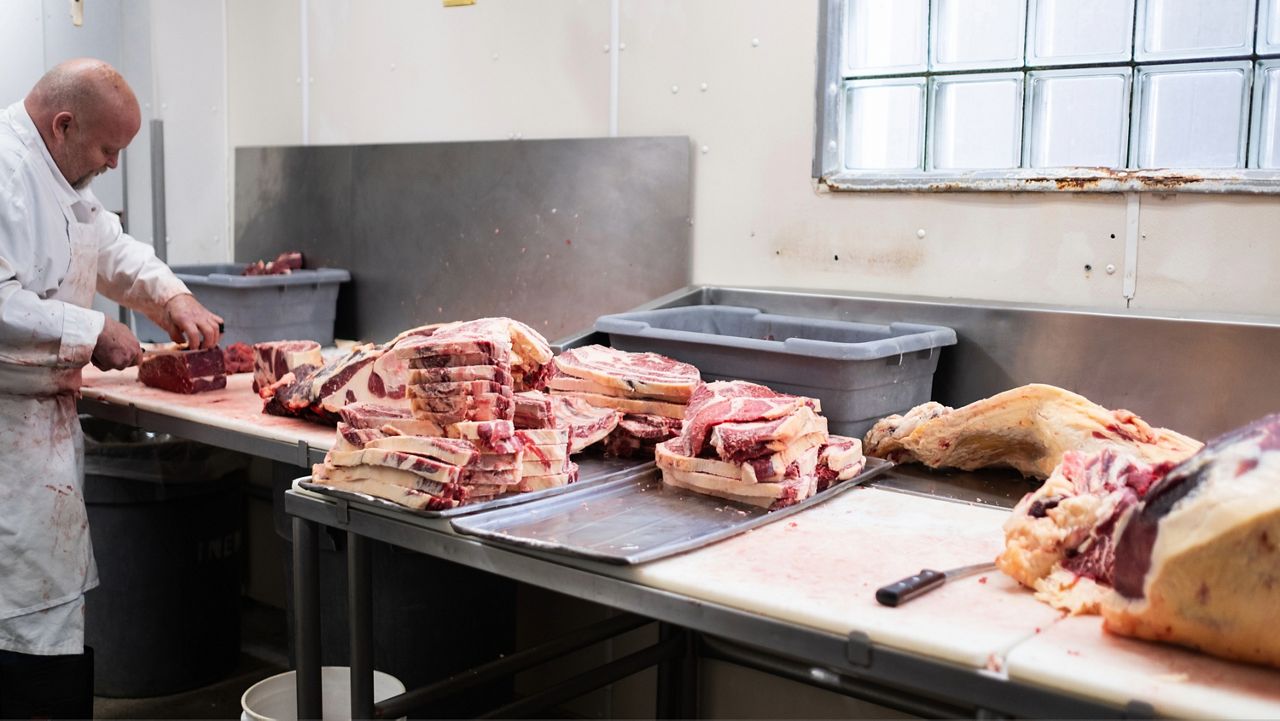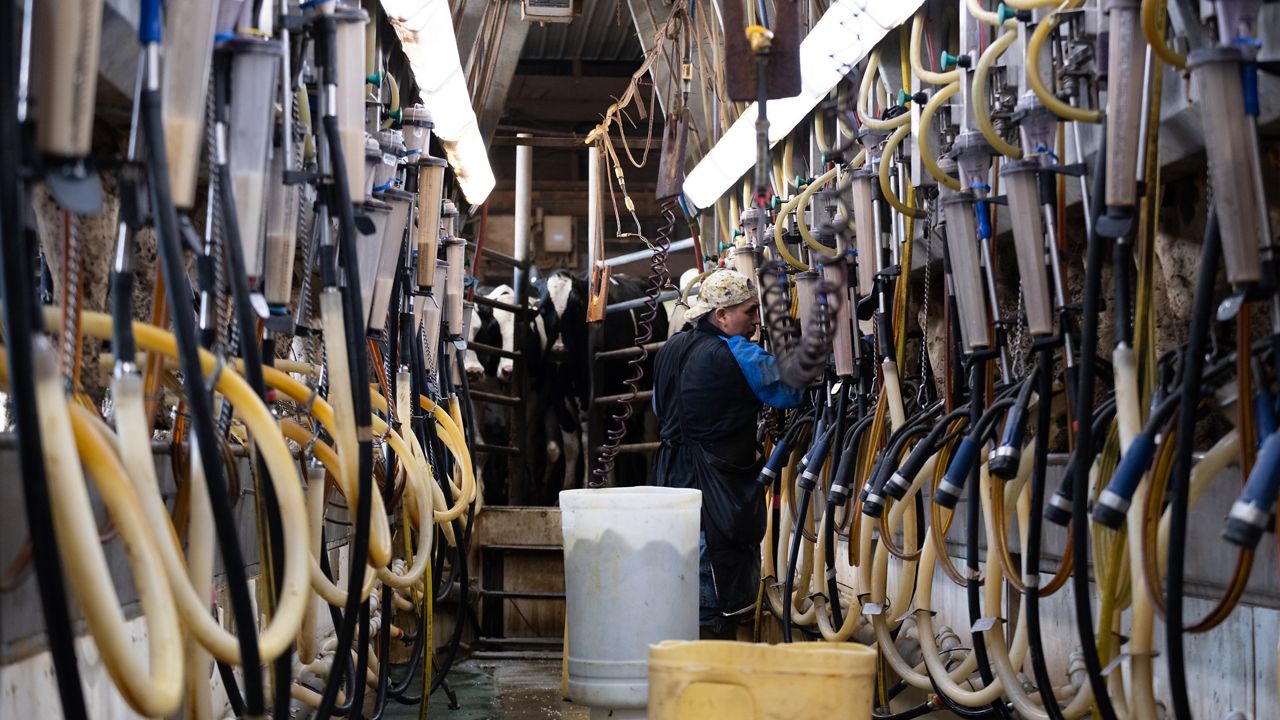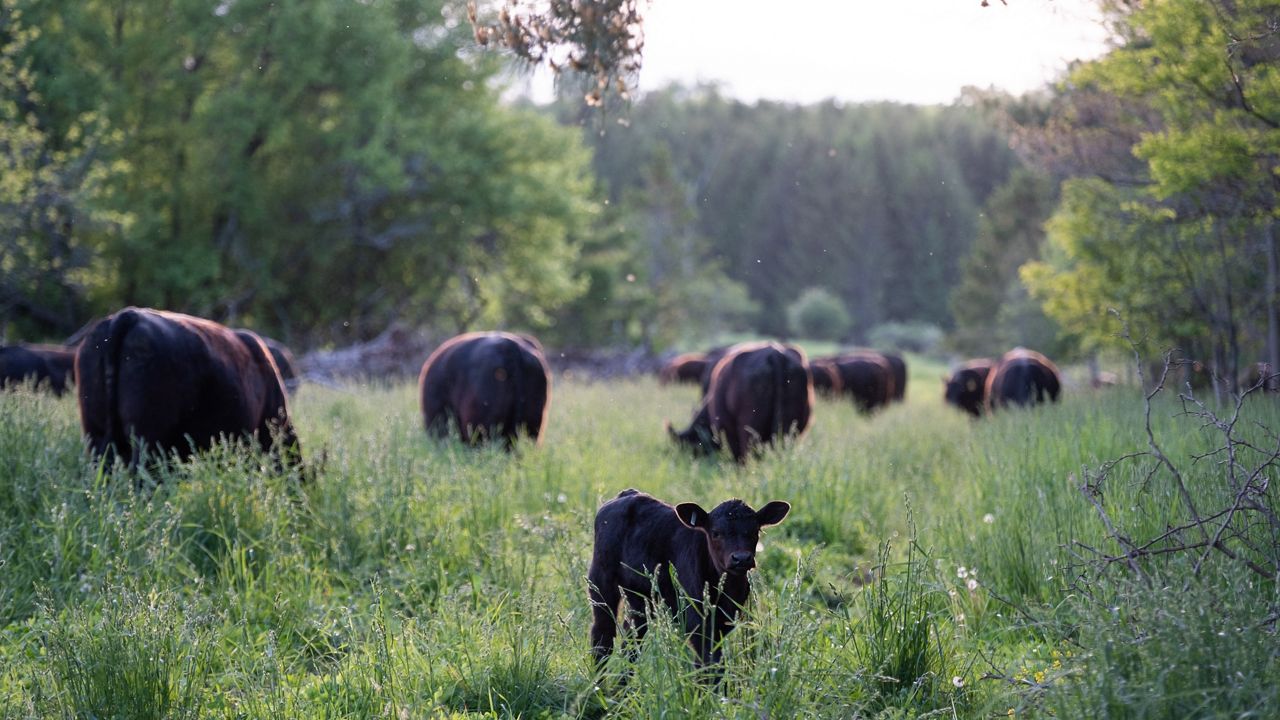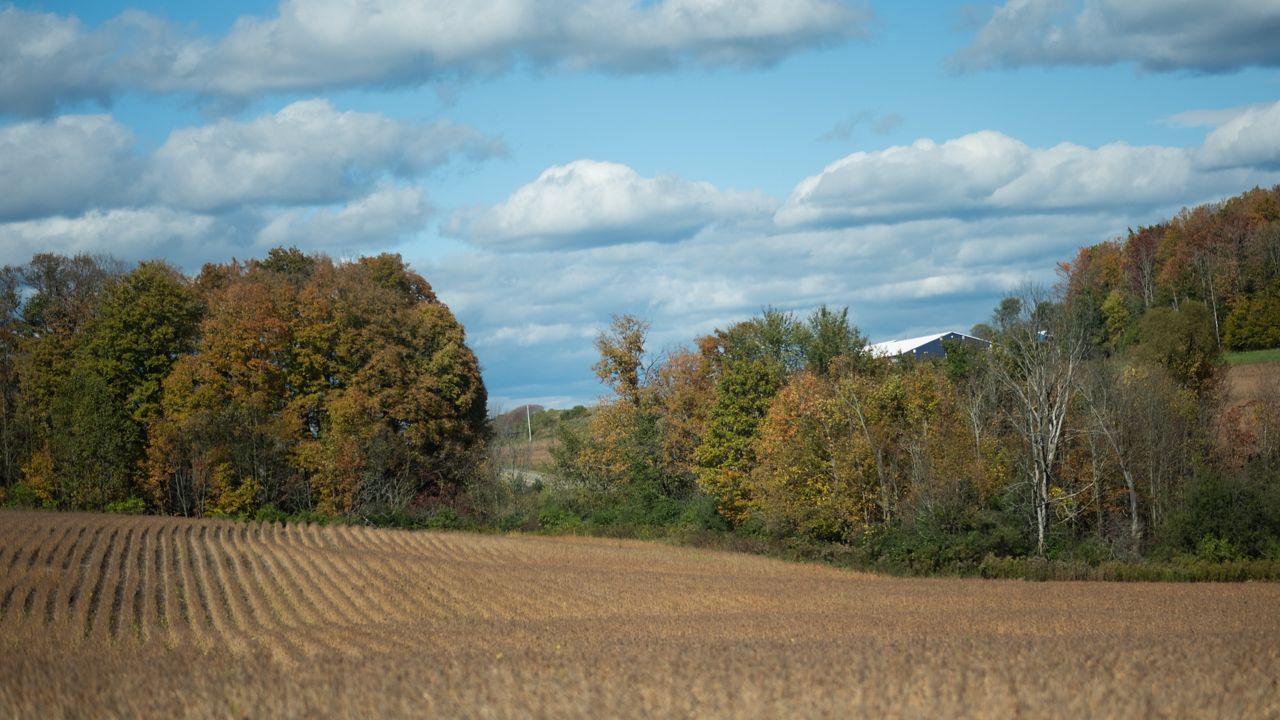A decline in beef production due to low cattle inventory could lead to record-high beef prices for consumers, according to a market report from the American Farm Bureau Federation.
The U.S. Department of Agriculture reports beef inventory hit its lowest level since 1948 after a drought impacted large beef producing states, such as Texas, Oklahoma and Missouri, which reduced the grazing abilities of animals on their pastures and restricted the number of cattle per herd.
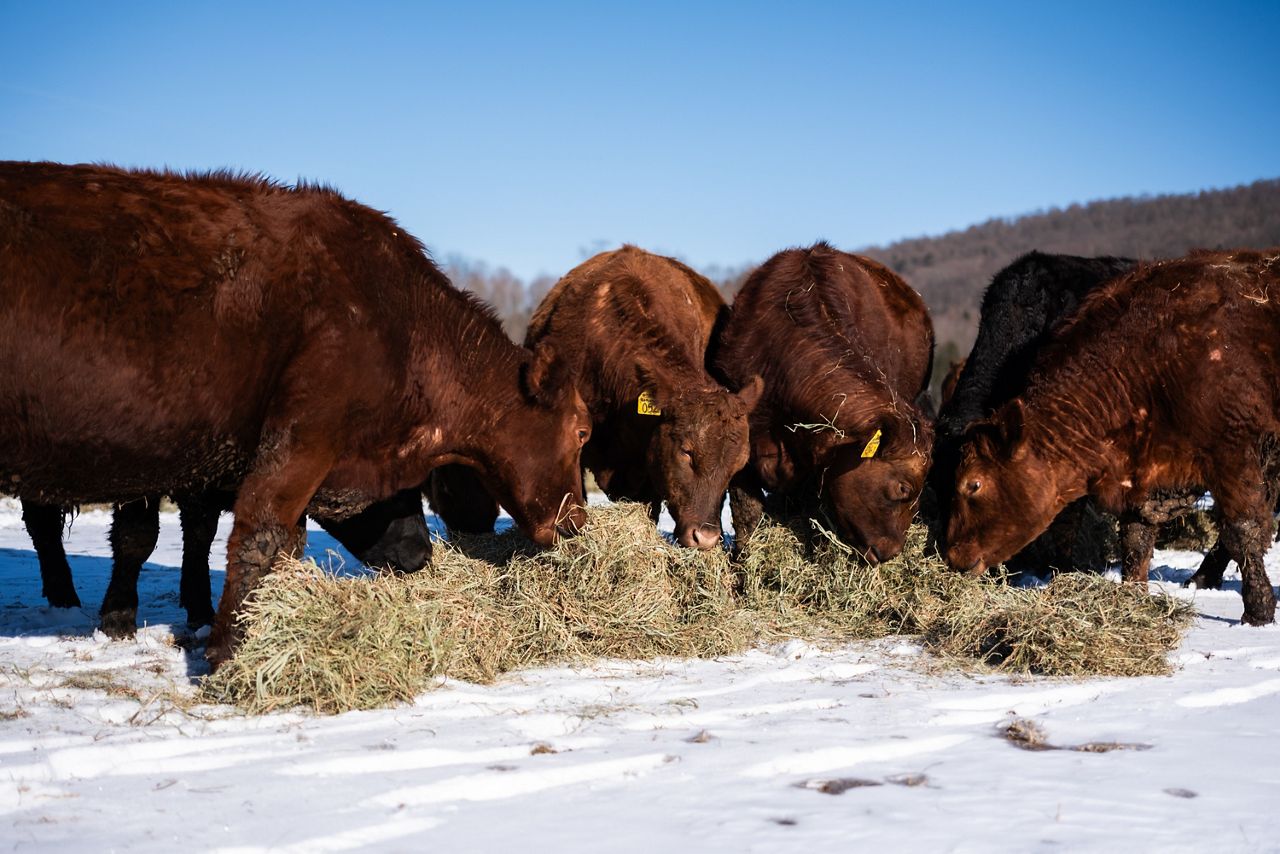
“When you can’t have feed, you have to reduce your stock until that forage comes back and I think nationally, our forage is down as well because we hit those droughts, so you can’t have the numbers [of cattle] there,” said Jacob Newton, who owns Hillside Farms in Truxton with his wife Alexa Newton.
With supply down and demand remaining the same, Newton believes consumers can expect to see higher prices for beef which currently averages about $5.00 per pound at the grocery store.
Seeing a void to fill, the Newtons increased the number of cattle they’ll process this year to 42, up from 37 last year.
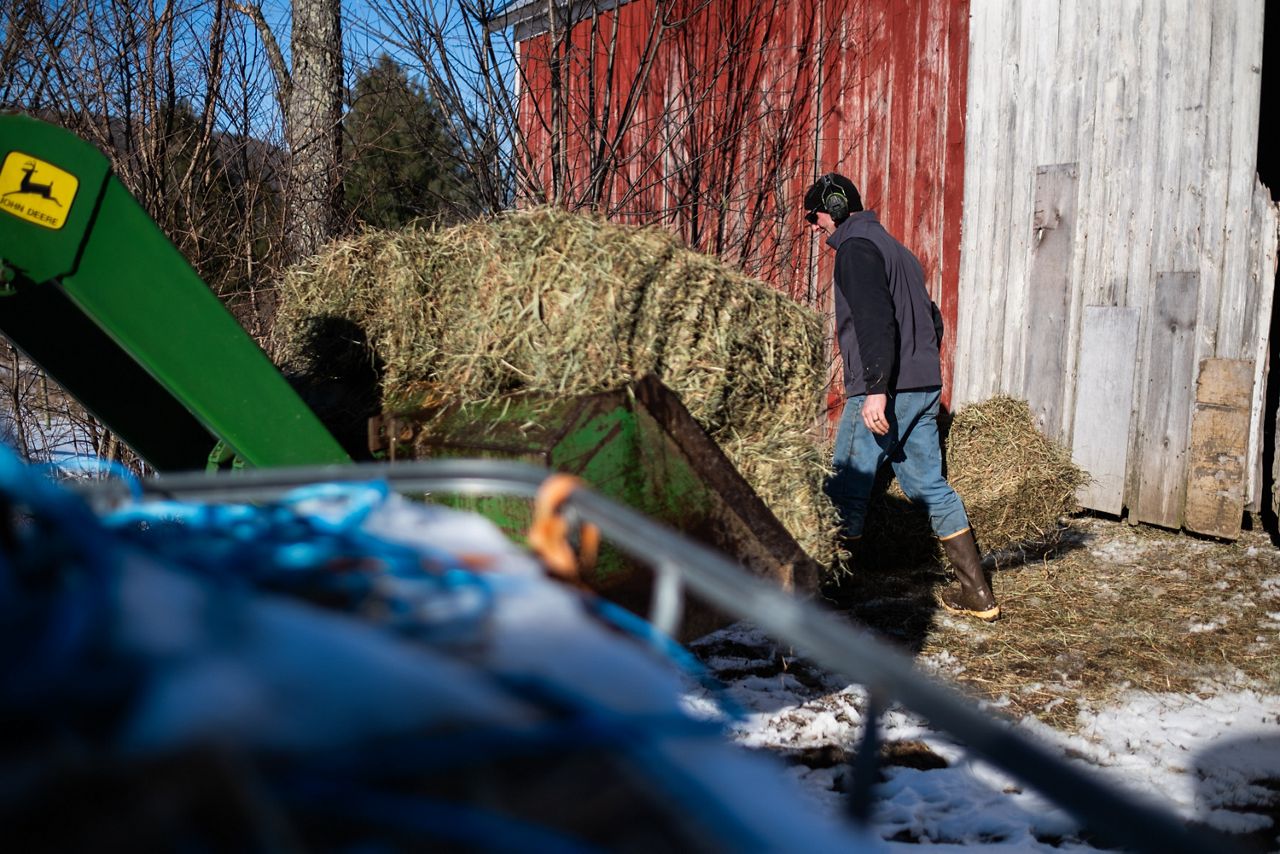
But the challenge for farmers in New York is finding a processor.
“That’s a huge downfall in New York state. We’re not a beef industry state, so we don’t have a lot of easy access to processing,” Newton said.
Owasco Meat Company is one of a handful of USDA-certified processors in upstate New York. The slaughterhouse processes 800 cattle per year from across the Central New York.
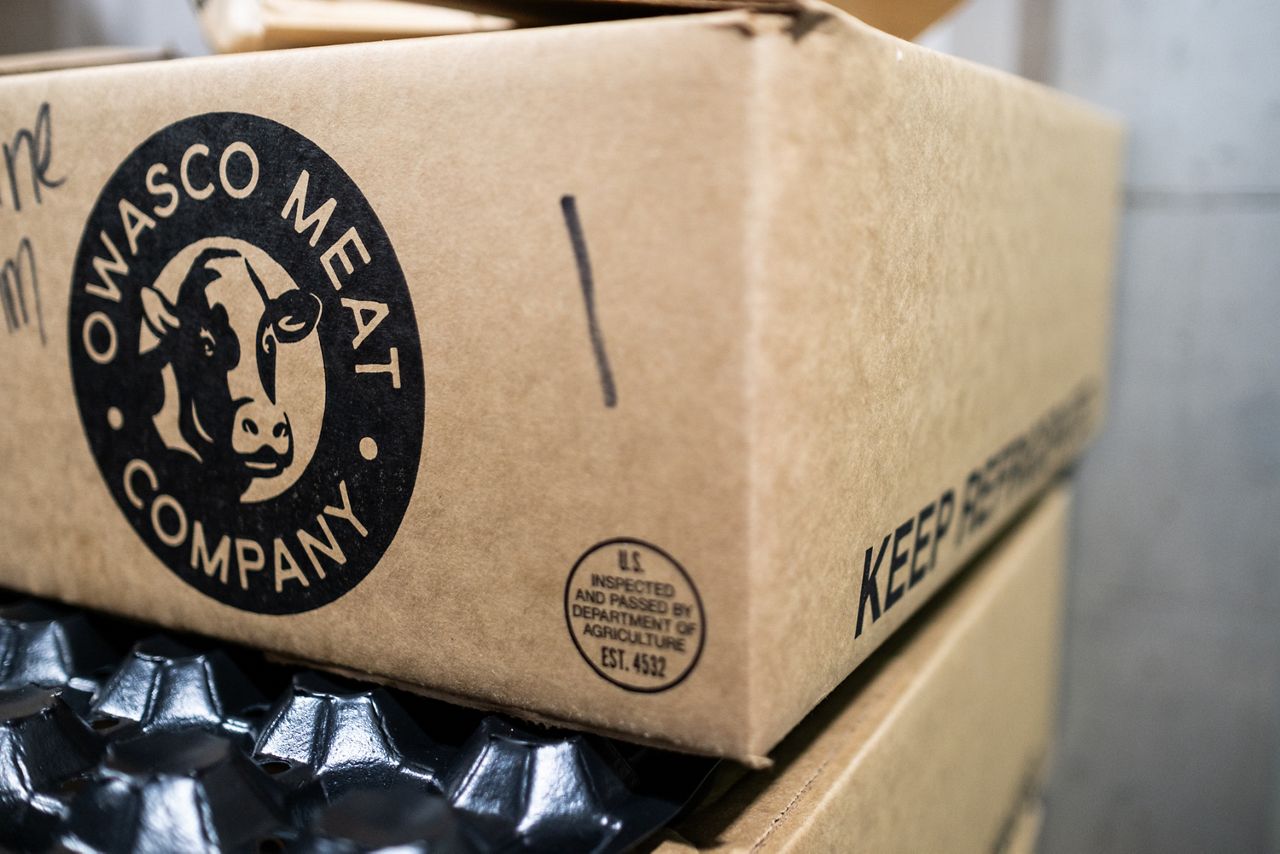
Callan Space, a co-owner of the Moravia-based company, said they will need to raise their beef prices because they’re paying more for the cattle.
“The cattle prices are absolutely crazy right now, which is driving higher beef prices and probably for the next six to 12 months we will see beef go up,” Space said.
However, high cattle prices aren’t the only factor.
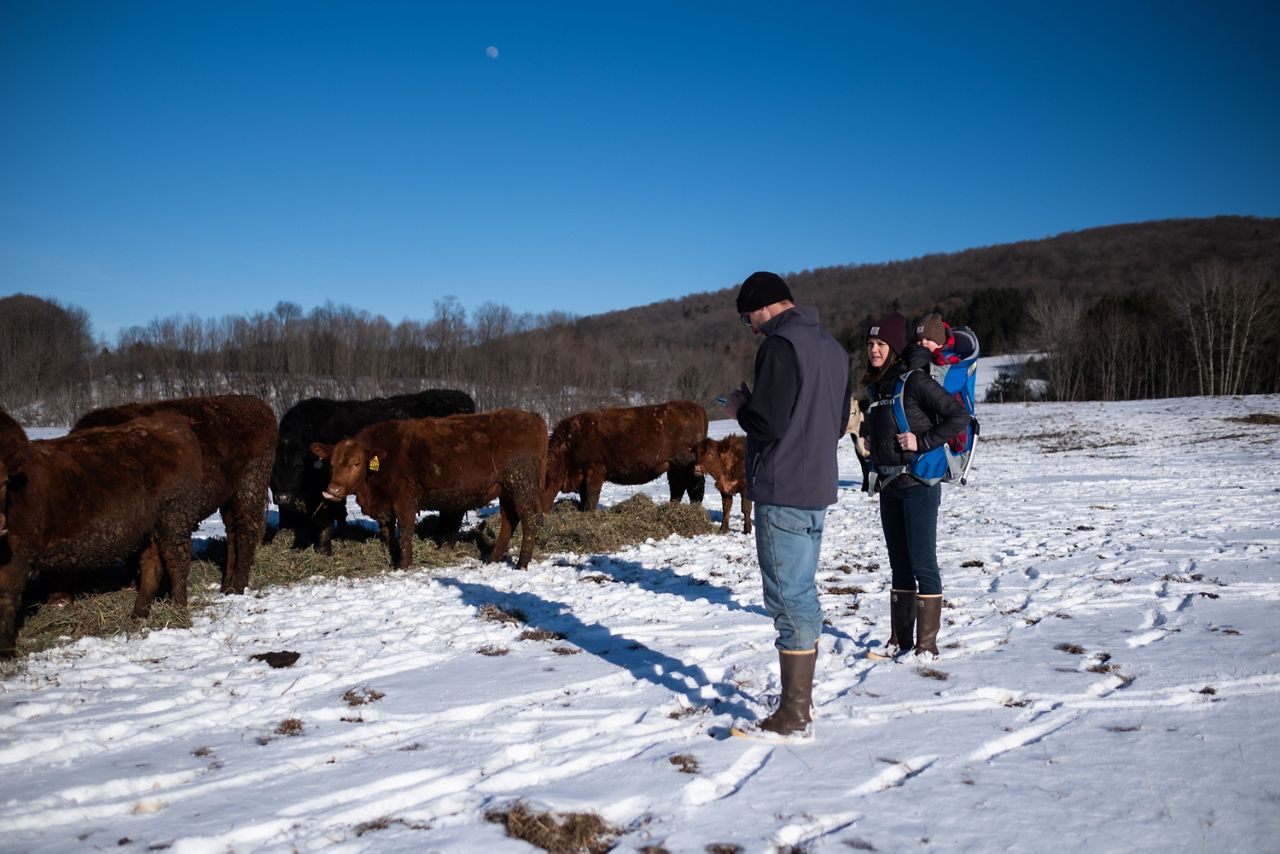
“Wages are going up. Food is not cheap to produce, and good food isn’t cheap. The cost of having lesser processed food that doesn’t have shelf life is going to go up,” she said.
In May 2023, New York Commissioner of Agriculture Richard Ball announced $5 million in grant funding to expand meat processing facilities.
“One of the biggest lessons we learned from the COVID-19 pandemic was how crucial it is to have a strong, resilient, local food supply chain. Over the last few years, we have been doubling down on our efforts to strengthen New York’s food processing facilities to help our local producers expand to new markets,” Ball said in a press release.
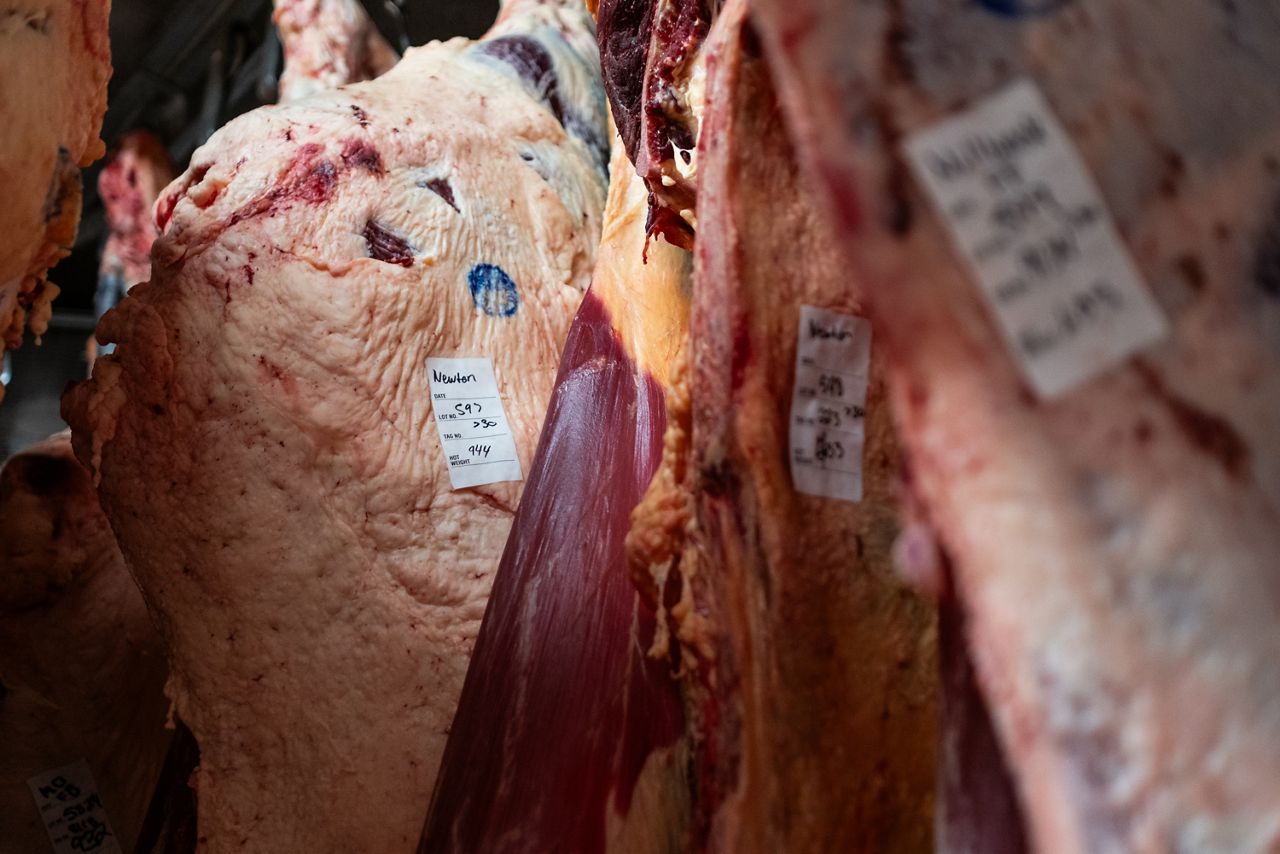
Space said they are a recipient of some of the funding, which will go toward their processing facility.
While the beef market at-large will be impacted by rising costs, Space believes local producers like Hillside Farms will continue to have a place in the market.
“I think the biggest benefit to local meat is the freshness and lower carbon footprint, which means it’s more sustainable,” Space said.

As consumers continue to take their carbon footprint into consideration, Space believes they will pay more for food that is locally produced.
“What better way to reduce carbon than to have animals that were on the farm 10 miles from here?” she said.





